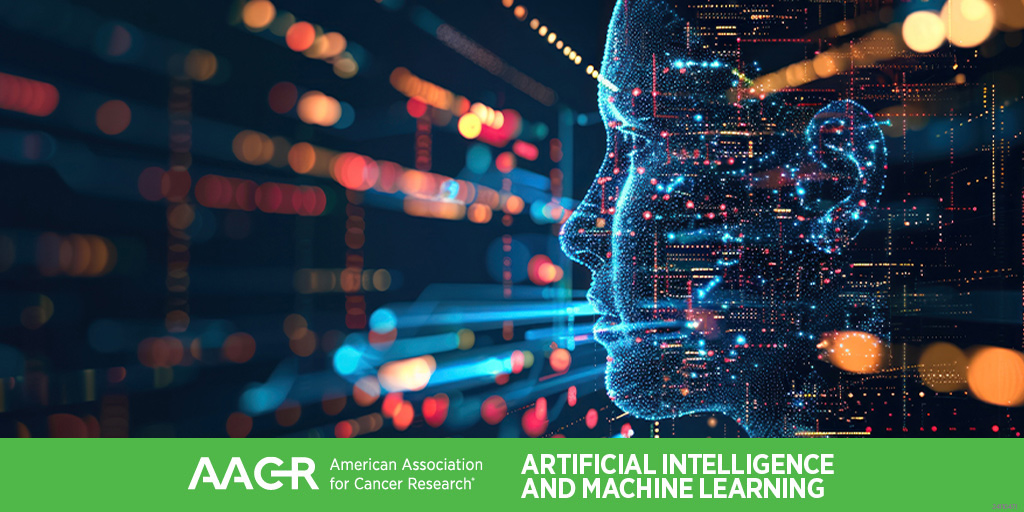
Bo Wang: More Than Just a Meeting – A Milestone
Bo Wang, Chief AI Scientist at University Health Network, shared on X:
“Just wrapped up an incredible three days in Montreal at the AACR Special Conference on Artificial Intelligence and Machine Learning – the first AACR event fully dedicated to exploring how AI is reshaping cancer research and care. I was deeply honored to serve as one of the conference co-chairs, alongside Valentina Boeva, Marzyeh Ghassemi, and Benjamin Haibe-Kains.
This was more than just a meeting – it was a milestone. Over three days, we brought together world-class scientists, clinicians, and technologists working at the frontier of AI and oncology. From foundational models to fairness in clinical deployment, the energy was electric and the conversations were forward-thinking.
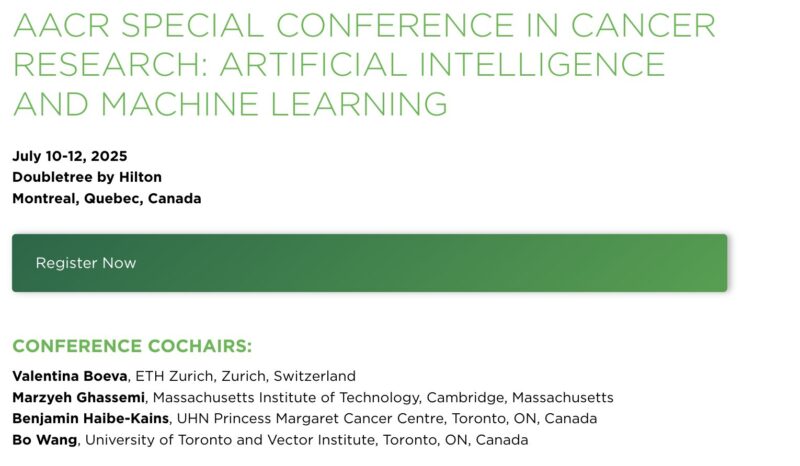
Keynote Highlights:
Dana Pe’er opened the conference with ‘Computational Approaches to Mapping Cells, Tissues, and Tumor Progression: Where Does AI Help?’ – a brilliant systems view of cancer biology powered by AI.
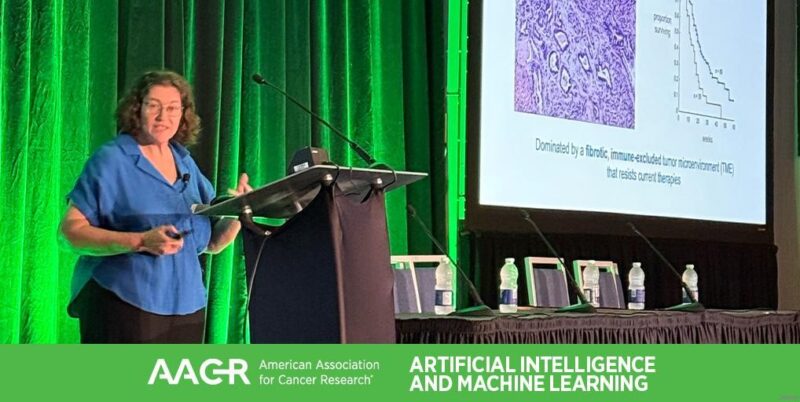
Marinka Zitnik inspired us with ‘Empowering Biomedical Discovery with AI Scientists’ – redefining how LLMs can act not just as tools, but as collaborators.
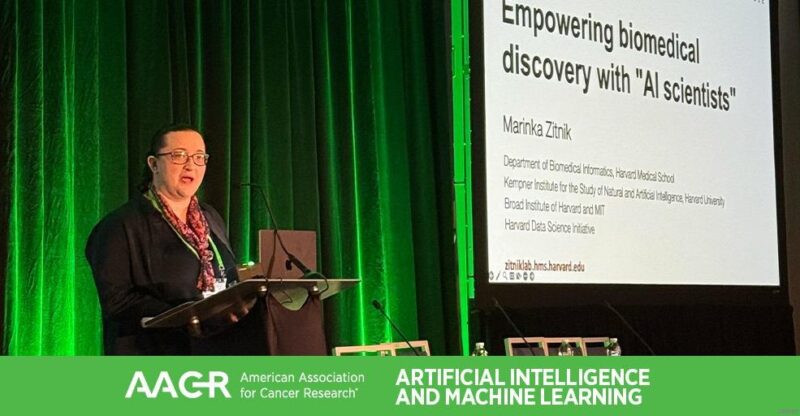
Anne Carpenter delivered the last keynote “Accelerating Oncology Drug Discovery with the Power of Microscopy and AI” — showcasing how imaging and machine learning are opening up new possibilities in therapeutic discovery.
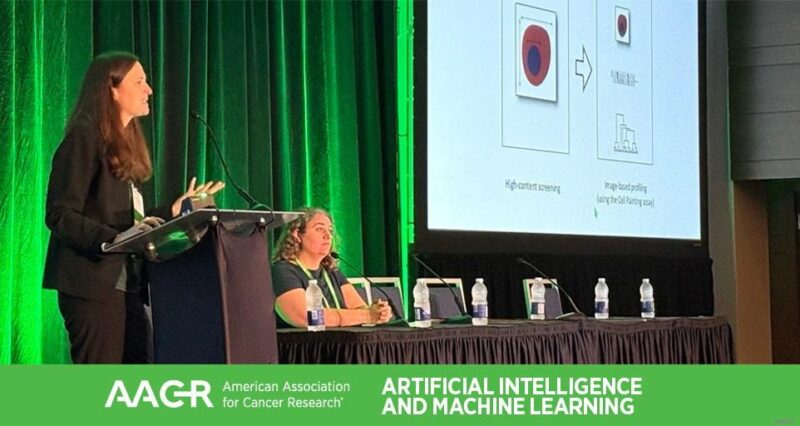
Scientific Highlights:
AI for Drug Discovery and Response Prediction:
Talks by Alexander Tropsha, Charlotte Bunne, and Alicia Pliego demonstrated how ML is driving innovation in therapeutic pipeline – from identifying new drug targets to optimizing treatment decisions.
Bias and Fairness in AI:
Benjamin Grant, Pranav Rajpurkar, and Benjamin Haibe-Kains led a vital discussion on the ethical and social responsibilities of deploying AI models in healthcare, with a focus on transparency, equity, and reproducibility.
Radiological Imaging with AI:
Catherine Coolens and Caroline Chung showcased how AI is already impacting clinical workflows in imaging—improving diagnostic accuracy, speed, and tumor monitoring.
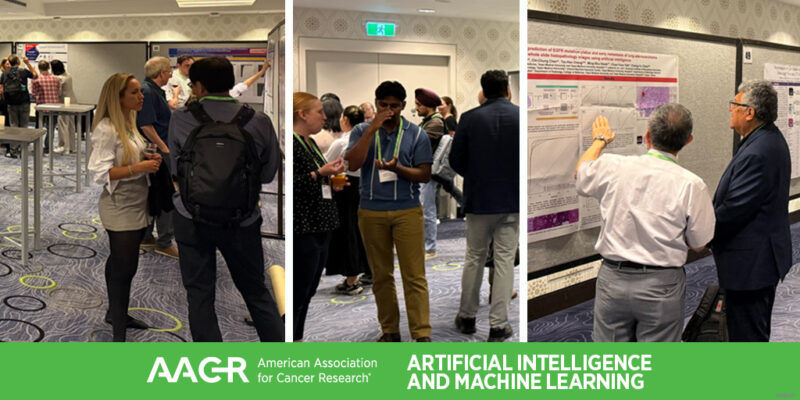
Many Other Highlights:
Sessions on foundation models, multi-omics integration, and digital pathology demonstrated AI’s expanding footprint in spatial biology and precision oncology.
And finally, I want to give a special shoutout to all the students, trainees, and early-career scientists who contributed to the vibrant poster sessions. These sessions were packed with innovation, energy, and fresh perspectives that speak to a bright future ahead.
My Key Takeaways:
- Foundation models are starting to permeate across biomedical domains – from genomics to clinical text to drug response modeling.
- LLMs are clearly powerful, but we must grapple with their limitations: bias, hallucinations, lack of interpretability, and generalizability remain major open challenges.
- Clinical adoption is lagging – many tools work in silico, but integrating them safely and meaningfully into real-world workflows is the next frontier.
- AI-powered drug discovery is promising but still speculative without solid real-world validation. Translating predictions into practice will take time, rigor, and deep collaboration.
Huge thanks to all the organizers, speakers, poster presenters, and attendees who made this conference an unforgettable gathering of ideas and momentum.
It’s a thrilling time to be working at the intersection of AI and cancer research – and this conference was just the beginning.”
See posts about AACR Special Conference.
-
Challenging the Status Quo in Colorectal Cancer 2024
December 6-8, 2024
-
ESMO 2024 Congress
September 13-17, 2024
-
ASCO Annual Meeting
May 30 - June 4, 2024
-
Yvonne Award 2024
May 31, 2024
-
OncoThon 2024, Online
Feb. 15, 2024
-
Global Summit on War & Cancer 2023, Online
Dec. 14-16, 2023
